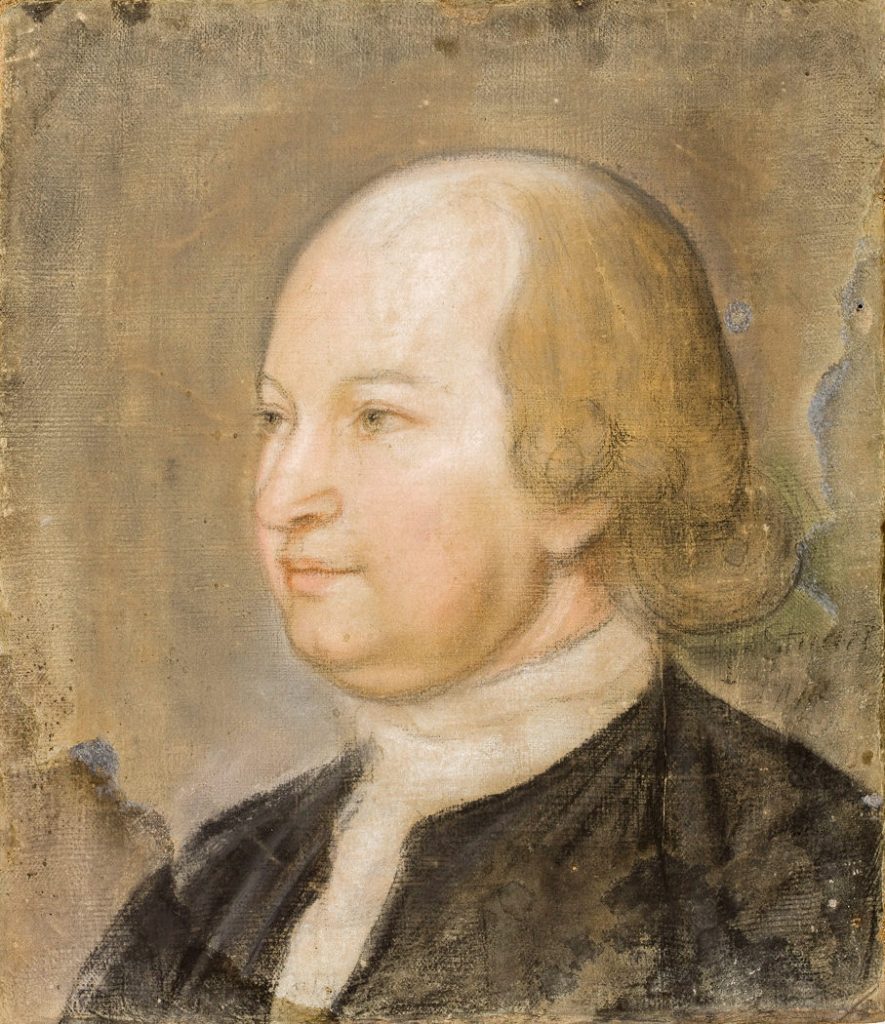Isaac Touro arrived in Newport, Rhode Island in 1758, responding to this burgeoning Jewish community’s request for a spiritual leader. Congregation Yeshuat Israel seems to have been established as early as 1658, but it wasn’t until a century later that the sixty to seventy families who made up the community found themselves in need of a hazzan and a synagogue. Touro would help meet both requirements.
Touro, then twenty years old, was from a Dutch Sephardic family—who in Spain had been the de Toros— and had trained in Amsterdam for the rabbinate (although he was never ordained). Before his arrival in Newport, Touro may have spent time in Curacao, Suriname, or New York, and certainly in Jamaica. It was from there that he arrived in 1758, as the city of Newport reached its commercial peak. Touro developed a close friendship with Aaron Lopez, the “merchant prince” of Newport who along with Jacob Rodriguez de Rivera served as one of the major benefactors paying to erect Newport’s Jewish house of worship. Construction began the following year. Touro consecrated the building on December 2, 1763.
In attendance at the dedication was Ezra Stiles—a Congregationalist minister, academic, theologian, and later president of Yale College. The service, he wrote, “could not but raise in the mind a faint idea of the Majesty and Grandeur of the Ancient Jewish Worship mentioned in Scripture.” Touro and Stiles developed a very close friendship. They carried on theological discussions and Touro helped Stiles with his Hebrew studies. Stiles would become a very accomplished Hebraist and a professor of Semitic languages at Yale, possessing some level of mastery or proficiency of Aramaic, Arabic, Chaldean, and Amharic as well. As president of Yale, on several occasions he delivered his commencement address in Hebrew and required for several years that all entering Yale students learn Hebrew. This, however, did not go over quite as well as he had hoped. “From my first accession to the Presidency,” Stiles wrote, “I have obliged all the Freshmen to study Hebrew. This has proved very disagreeable to a number of the students. This year I have determined to instruct only those who offer themselves voluntarily.”
In June 1773, Isaac Touro married Reyna Hays, sister of Moses Michael Hays. They would have three surviving children together: Abraham, Judah, and Rebecca. A Loyalist, Touro and his family remained in Newport when the British took over the city in 1776. Many of his congregants, however, fled to Massachusetts or Philadelphia. Facing financial uncertainty, the Touros moved first to New York and then to Jamaica, where Isaac briefly served as hazzan. He died there at age forty-six. Touro’s wife and children returned to America to live with the Hays family in Boston.
Isaac Touro’s legacy, in many ways, was secured by his sons, both of whom would become successful businessmen and generous philanthropists. In his will, Judah left a large sum for the maintenance of the Jewish cemetery and synagogue in Newport over whose dedication his father had officiated. His bequest preserved the vestiges of a once wealthy and vital Jewish community that was dormant at the time of Judah’s death. In the years since, the synagogue has come to be known popularly as the Touro Synagogue, the oldest synagogue building in the United States. It stands as the centerpiece of American Jewish iconography.
